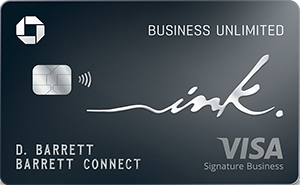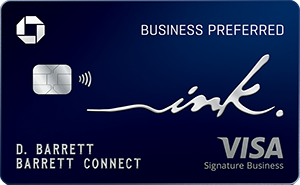According to the U.S. Small Business Administration, small businesses make up 46.4% of the private business market. This means despite the number of businesses that fail, millions of small business owners are growing and succeeding. You could be one of them.
But starting or growing a small business can be daunting. Will you fail? What if your gamble doesn’t pay off? Will you end up in debt and without an income? If fear is holding you back, you might be falling victim to these common myths about small businesses.
1. You need a lot of capital to get started
Not all businesses have high start-up costs. In fact, most companies can be started with a few hundred dollars or less. Sure, if you want to build a unicorn software company or develop and sell a high-priced tech item, you might need a lot of start-up capital.
But most small businesses don’t require millions from angel investors. Think about how you can start small and build over time. If you want to open a restaurant, maybe start with a food truck. If you want to build an accounting firm, begin by taking on a few freelance clients. Don’t let the lack of capital stop you from getting started.
2. You should avoid debt at all costs
Debt isn’t inherently bad. Debt taken on with a clear vision and solid plan can be the key to long-term growth. Being strategic about taking on debt can limit the risk of taking out loans.
First, look for grants that you won’t have to pay back and make sure you’re in a position to pay any business loans back by developing a growth plan. But if you need capital to start or grow your business, the right business loan can give you access to capital. Don’t assume all debt is bad debt.
Business Credit Card Comparison
Consider these business credit cards that offer a convenient and efficient way to separate personal and business expenses, simplifying accounting and tax reporting.
Additionally, business cards can provide valuable perks such as rewards points, cashback, and expense tracking tools, enhancing financial management and the potential to help save money in the long run.

Ink Business Unlimited® Credit Card |
Earn $750 bonus cash back Earn $750 bonus cash back after you spend $6,000 on purchases in the first 3 months from account opening. |
Earn unlimited 1.5% cash back on every purchase Earn unlimited 1.5% cash back on every purchase made for your business |
Purchases: 0% Intro APR on Purchases, 12 months Balance Transfers: N/A
Regular: |
|

Ink Business Preferred® Credit Card |
Earn 120,000 bonus points Earn 120,000 bonus points after you spend $8,000 on purchases in the first 3 months from account opening. |
Earn 3 points per $1 in select business categories Earn 3 points per $1 on the first $150,000 spent in combined purchases on travel, shipping purchases, Internet, cable and phone services, advertising purchases made with social media sites and search engines each account anniversary year. Earn 1 point per $1 on all other purchases-with no limit to the amount you can earn. |
Purchases: N/A Balance Transfers: N/A
Regular: |
3. You have to follow a detailed business plan
You do need a business plan, but you don’t need to spend four months writing out a meticulous 40-page business plan that covers every conceivable process, marketing strategy, and funding option.
Instead, spend a week or two writing out what services your business will offer, who you’ll offer those services to, and how you’ll find customers. Including information about processes and sales metrics can be helpful, but don’t let the process of writing a business plan stop you from getting started.
I heard a phrase early in my career that really stuck with me: “Done is better than perfect.” Keep that in mind as you write your business plan.
4. Marketing is all or nothing
Marketing is key to business success, but it’s not an all-or-nothing game. You don’t need to be on every social media platform, invest in search engine optimization, build an affiliate program, and land spots on your local radio station. In fact, trying to be on all the marketing channels at once is an excellent way to burn out and waste resources.
Think about where your customers are and focus your efforts there. For example, if you own a power-washing business, customers are likely on Facebook and NextDoor looking for referrals, not LinkedIn. In some cases, word of mouth might be a better strategy than paying for marketing. Focus on one or two marketing channels that make sense for your business and your customer base.
5. Low pricing is the best way to stand out
While low pricing might initially attract customers, it often results in razor-thin profit margins and is unsustainable. It might also cause customers to assume your offering is of lower quality than your competitors.
To attract customers, focus on providing quality products or services and excellent customer service. Explain the value your business offers and how it will improve their lives or make their jobs easier. If pricing really feels like a stumbling block, consider offering a short-term price reduction, like a discounted first service or a free consultation.
There are a lot of myths about owning a small business. While some of them are true, like the freedom that comes with being your own boss, some myths will limit your success. By adopting a more flexible and strategic approach to taking on debt, marketing, writing a business plan, and setting prices, you’ll build a stronger, more resilient business.
Alert: our top-rated cash back card now has 0% intro APR until 2025
This credit card is not just good – it’s so exceptional that our experts use it personally. It features a lengthy 0% intro APR period, a cash back rate of up to 5%, and all somehow for no annual fee! Click here to read our full review for free and apply in just 2 minutes.
